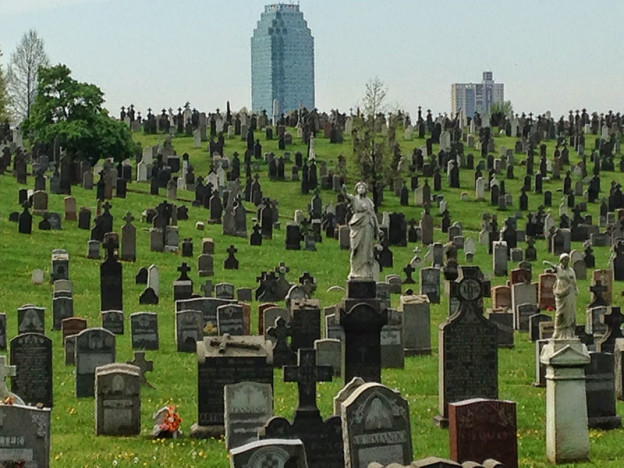Last week the Religious Herald reported the recent ordination at a Richmond church. According to reports, Ginter Park Baptist Church ordained (September 16) an openly gay man to the Ministry. As a result of the ordination, Ginter Park Baptist Church was asked to voluntarily withdraw membership from the Baptist General Association of Virginia. I affirm the decision and action by the Virginia Baptist Mission Board’s Executive Committee.
Neither the ordination nor the Executive Committee’s response surprise me – it’s the day and time in which we live. What did trouble me was the subsequent lengthy conversation by the Virginia Baptist Mission Board members debating the Executive Committee’s response. I’m concerned with the rationalizing voices on Virginia Baptist Mission Board. One member voiced we’d lose churches to another convention if action wasn’t taken. Maybe true, but when has fear been a basis for solid decision-making? Leadership demands principled decision-making and not from a fear based reactionary mindset. Talk principles and not fear. Another member either blatantly or unknowingly misconstrued a dearly held Baptist distinctive (Priesthood of the Believer) in an attempt to avoid the issue all together. You cannot entertain the Priesthood of the Believer without the Priesthood of the Believers. Priests live in (accountable) covenant community. The Priesthood of the Believer isn’t a license nor is it something to hide behind. The “autonomy of the local church” argument was quickly inserted into the argument. Yes, every Baptist church is autonomous and can decide its actions accordingly. A church cannot expect to maintain an affiliation with an association of churches when its actions contradict the association’s guidelines, principles, and practices.
The more I read in the Herald, the greater my concern grew. In my opinion, there is a significant leadership void on the Virginia Baptist Mission Board. We can’t afford fearful reactionary leadership! We cannot afford misguided leadership. We need fearless competent leadership! Where are the Baptist leaders in our state? We can do better! We must do better! We desperately need a governance change to alter the way Virginia Baptist Mission Board members are vetted.
As I look to the Annual Meeting in Roanoke, I’m looking for real leadership in officer nominations. The notion of alternating clergy and laity compounded by unwritten service expectations is craziness. Let’s just elect the best leaders. Why penalize an organization due to archaic unofficial processes? Are we going to elect a president who served twenty-five years ago again just because he’s familiar with big numbers (that are dwindling annually)? While I think the nominee to be a good man, I believe we need a fresh wind. It is time for change!
Why this and why now? Someone has to say what others are thinking and talking about behind closed doors around the state. There needs to be voice and I believe WE can do BETTER!





Maybe they were debating their archaic view of leadership and the non-scriptural criteria the church has put on those seeking to serve. Where in the Bible does it say that anyone was asked “Are you gay?” after repenting and deciding to follow Christ? One can only wonder why numbers are dwindling – “yes, you can be included, but you can’t.” Not the kingdom of heaven I’d want to live in.
The Bible does speak to a “higher” standard for those who teach and lead. There is a call to purity and a sexual ethic by which orthodox faith subscribes. It’s funny you mention numbers, which isn’t always an indication of either health or success, but the declines in congregational attendance aren’t being experienced in congregations that adhere to a higher standard. It’s the congregations that seek to promote an extreme liberal doctrine or theology that are dying – it’s happening in the Episcopal, Presbyterian, and Methodist Churches. Ginter Park at one time (years ago) was a thriving congregation. It’s all but died – dwindling and basically irrelevant to her community. When man becomes the “center” of your theology, the church loses its power. I don’t want to live in that kind of kingdom.
There are clearly differences of opinion on this, even within the Baptist community. I’m not sure that the qualifications of teachers, deacons, etc. in 1 Timothy are always read in the context of the day in which they were written and applied to the world we live in now. Taken literally, it would exclude many people who are perfectly qualified to serve. If all are sinners, then truly no one is qualified to serve.
While there is some conflicting information about whether church attendance is declining or not, two facts seems to be solid: 1) churches are not keeping pace with population growth and 2) smaller churches are dying out at a faster rate than larger churches. There is some large church growth but much of it seems to benefit from the smaller churches closing their doors. It’s likely difficult to “compete” with the larger churches and it’s harder to maintain a building, staff, etc. when you are smaller. The numbers I looked at were fairly consistent across denomination.
The church will never lose its power. The kingdom of God has already begun with Christ’s life, death and resurrection. The promise and hope of Revelation is that all will be reconciled to God. God will dwell among His people (on Earth, btw). God will transform all things into new things. I believe we will all be asked to take an active role in furthering and administering the kingdom of God for eternity with our only qualification being His children, saints and heirs.
No doubt there are differences of opinion – that’s why the debate is ongoing.
There is substantial documentation that churches with a liberal theological bent are loosing ground faster than moderate and conservative congregations. True, churches are not keeping pace with population growth – for a number of reasons (maybe an opinion piece later). I don’t think you can fault the larger churches for the demise of smaller congregations (many of which were larger and vibrant in their earlier days but something happened). And I’ve seen churches (communities, groups, gatherings, people – whatever you want to call it) that have lost their power. Something more than Elvis left the building. As beautiful as the bride may be, she’s got a lot of warts.
And not to be disrespectful – that last paragraph has some Rob Bell familiarity with it. Now that’s a theological perspective where there are a lot of opinions. ☺
N.T. Wright, actually, though Rob does benefit from Wright’s work. I highly recommend “Surprised by Hope.”